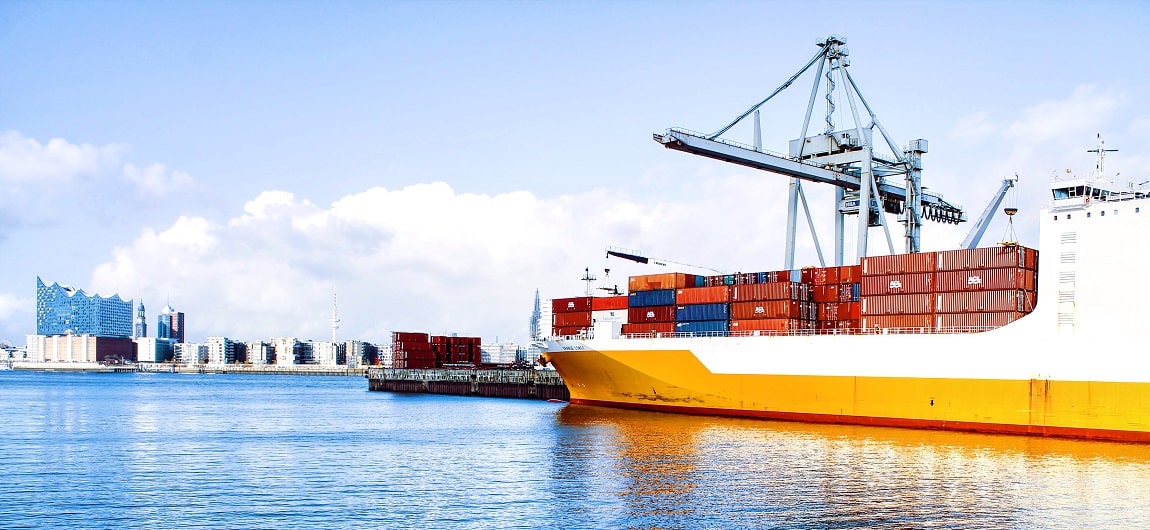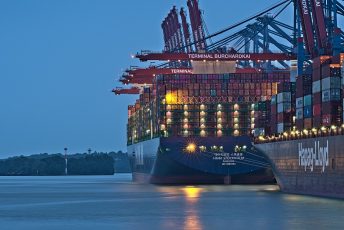While we aim to make importing as stress-free and simple as possible for first-time importers, importing can be a bit of a minefield. However, we have a lot of experience in the area and today we’re sharing our top 10 essential tips for importing from China to the UK. These tips will help you save money and reduce stress!
-
10 Essential Tips When Importing From China
1. Try to use FOB terms as often as possible
You can find a more thorough explanation of FOB shipping terms in our glossary, but simply put FOB terms mean that a seller has responsibility for goods until they are loaded onto a vessel, and a buyer has the responsibility for them once this has happened. FOB terms include customs clearance and are globally used due to their clarity – everyone in the process knows where they stand at all times. FOB is the best way to control your costs and be able to accurately budget without being slammed with enough hidden charges to bankrupt you and cut your business off at the knees before it can even begin.
2. If it sounds too good to be true, beware
We have seen plenty of honest importers and exporters who’ve been duped by Far East suppliers who offer incredibly cheap – or even free – shipping to entice people to buy their products over those offered by a competitor. These deals may be cheaper at first but you will almost certainly be hit by eye-watering charges when the goods arrive in the UK.
3. Be aware of hidden costs
Other shipping service providers may give quotes which appear to be very competitively priced but make sure you’re comparing like for like if you’re tempted to use another company – our quotes include absolutely all the foreseeable costs in the whole shipping process, meaning no nasty financial surprises. One example of this is deferment: the charge that some freight forwarders charge you for paying HMRC on your behalf.
4. Make sure your supplier has a valid export licence
This only applies to you if you’re on EXW terms, but if your supplier does not have a valid export licence you may have to pay for one yourself. This can cost upwards of £100. Sometimes, it’s worth finding this out just to check how reputable your supplier is; an experienced supplier will have an export licence as they’ll be used to shipping outside of the country.
5. Make sure that your goods have the necessary paperwork and certification
Clearing UK customs is essential for your goods to get into the country. If your goods aren’t suitable for entry, at best they’ll get destroyed – and, at worst, you’ll be penalised. We have an entire post dedicated to clearing UK Customs, Trading Standards and the checks your goods will undergo, but the base necessity that you need to avoid being detained is your paperwork. Certain goods need certificates (such as organic goods) and making sure that your supplier has these certificates avoids delays.
6. Order samples first
We’d strongly recommend ordering samples from your supplier first to get a feel of your product’s quality. It’s worthwhile to note, however, that some suppliers will use samples as an enticement and the product quality won’t actually end up being the same.
Nevertheless, while samples aren’t a complete guarantee, we’d still recommend ordering samples as a decent starting point. Check our guide to controlling quality when ordering from China for more information.
7. Treat your supplier fairly, with respect and in consideration of their culture
Almost all of the largest problems that importers run into when dealing with Chinese suppliers are based on cultural differences. In the UK, and Western culture in general, business culture is completely different. In China, relationships play a large part in business and your relationship with your supplier determines not only how you’re viewed and valued as a customer, but also the quality to which your goods are produced. To help you find out more, we’ve written a post about business culture in China and how to build and maintain relationships with your Chinese supplier.
8. If you’re using more than one supplier, consider a Buyer’s Consolidation
Many importers import goods from more than one supplier in China and will pay for these shipments separately – which is a lot of money! However, there is a little cheat we think you should know about – Buyer’s Consolidation.
A buyer’s consolidation is when you pack your goods from your separate suppliers into one shipment. In effect, a buyer’s consolidation is the same as LCL shipping – but instead of sharing space with other importers, you’re sharing space with yourself. This saves you money as you’re only paying for freight for one shipment.
9. Be aware of UK Duties and Taxes
UK Duties and Taxes can actually be the most expensive part of the process.
Different products carry different duty ratings – which means that until you look it up, you won’t know how much extra you’ll be charged. Some products even have an Anti-Dumping Duty – and you’ll have to pay out an extra 40%! The same goes for taxes; most importers aren’t generally aware that, on top of all of this, you’ll have to pay a VAT charge that’s 20% of the entire process. Yes, that’s your goods, the freight and even the duty. We’d recommend that importers be aware of the costs of UK Duties and Taxes so that you can budget accordingly.
10. Find a high-quality supplier
Almost all of your large issues can be avoided by finding a high-quality supplier
-
Shippo - Your Sea Freight Friend
We hope you found our essential tips for importing from China to the UK useful.
Please don’t hesitate to contact us should you have any questions about importing from China. Or you can go right ahead and grab a quote.
We use Shippo to arrange delivery of Glassware we have manufactured in northern China. The process is straightforward, we are kept in regular contact with the status of the order from collection through the ‘at sea’ bit, right through to customs. Staff are knowledgeable, helpful and friendly. It just works seamlessly for us. Highly recommendedMichael GreenRecent posts
LCL – How Will My Goods Be Delivered
0 commentsThe standard delivery offered when importing goods to the UK is kerbside. This means that the driver will park up outside your premises and it’s
FCL – How Will My Goods Be Delivered?
0 commentsAs with the standard deliveries, full container load deliveries are “kerbside” This means the container will arrive on the back of the truck and you’ll
Which Container’s Right For Me?
0 commentsIf you’re shipping enough goods to fill a container then you’ll need to arrange an FCL (Full Container Load) shipment. The most common containers in

 2. If it sounds too good to be true, beware
2. If it sounds too good to be true, beware


